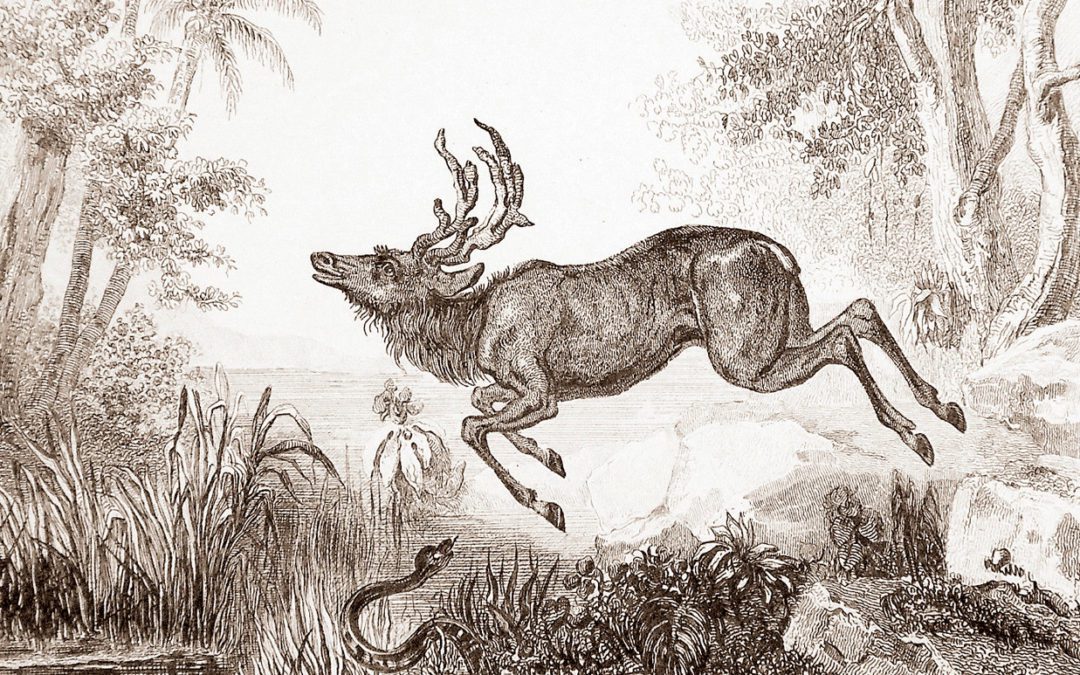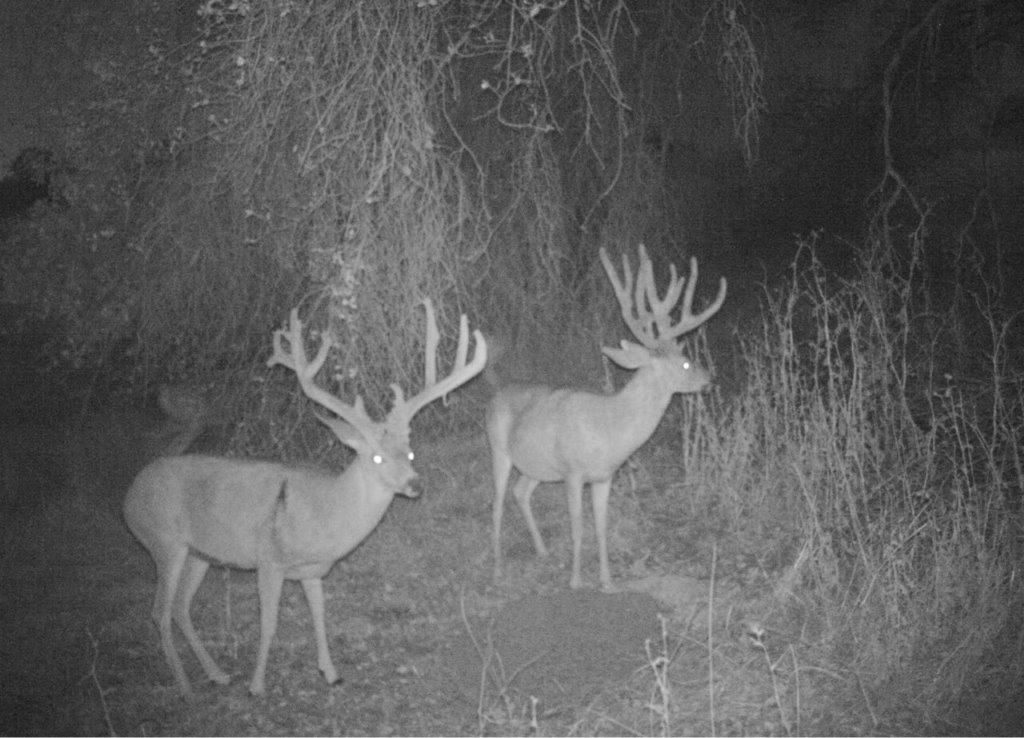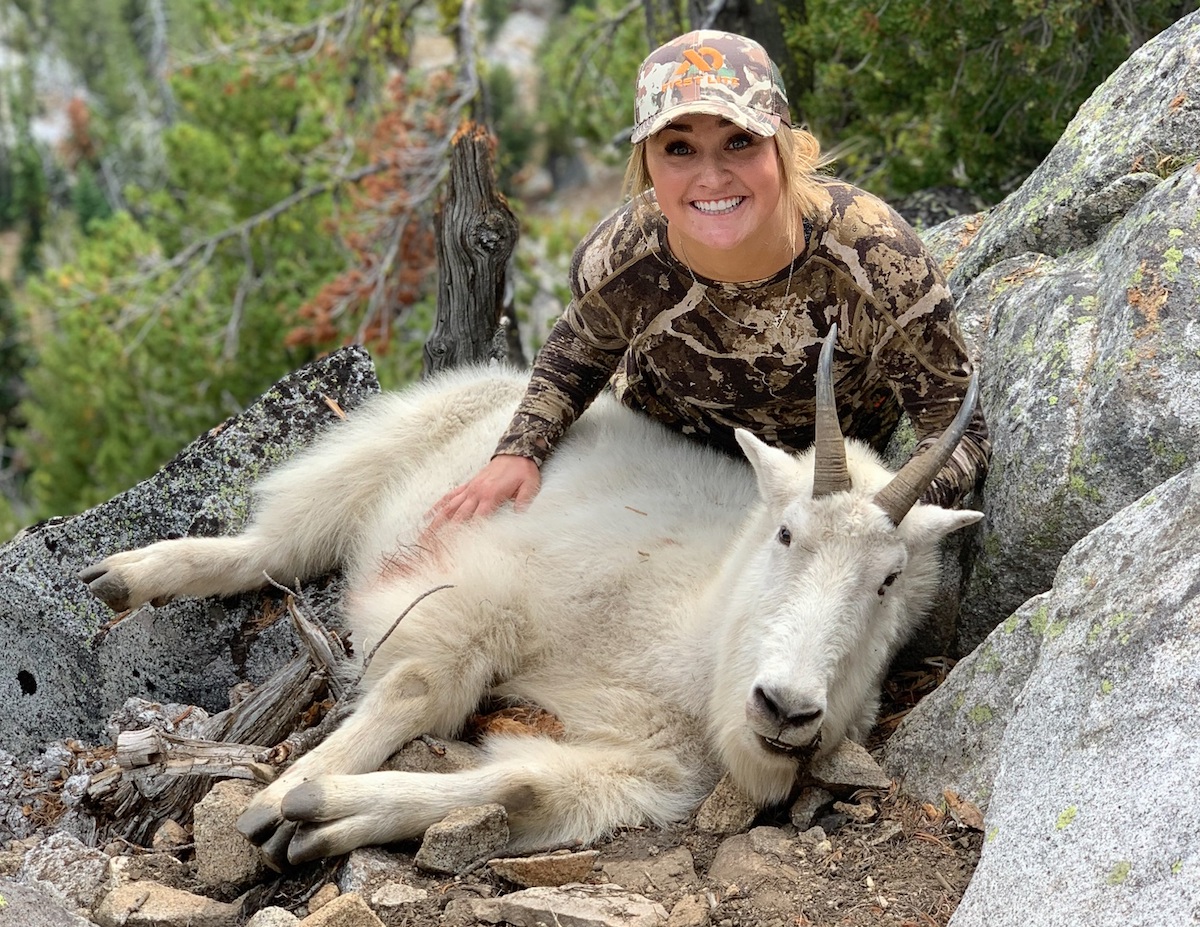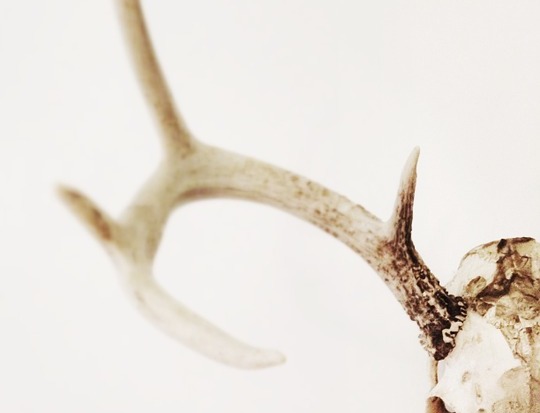It was Richard who showed me the huge antler—a dropped horn from a whitetail buck. Massive to a degree rarely seen, not less than five inches it measured around the handsome beading. Moreover, there were nine clear points, none mere craggy excrescences; they were genuine tines. Architecturally the beam was perfect. Of course, it was gray from weathering, and it had lost some of its impressive weight; nevertheless, I had never seen a trophy which interested me more. Wild woodland beauty and romance, caught and made permanent, were in such an object for me.
“Well,” I asked, “and where did you find it, Richard?”
“Cap’n,” said the smiling negro woodsman, “you done already know.”
“On Curlew Island?”
He nodded.
“This year?” I asked.
“I picked up this horn a month ago,” he replied—and here his tone took on a seriousness which actually thrilled me—“and this same buck I done see no later than Wednesday, this same week Wednesday.”
“And you mean to tell me, Richard, that he was wearing a top hat like this?” I questioned, eyeing the tremendous antler and then the dusky trapper.
“He done ordered a larger size this season,” the negro assured me, a smile creasing his face as a crack in front of a knife creases an overripe watermelon.
When it comes to sporting matters of this kind, I am inclined to be abrupt. “When do we start?” I asked shortly.
The suddenness of my question did not surprise Richard. He knew me too well. Almost from the cradle we had hunted deer together in the wilds of the Carolina coast country. And he was very well aware that while the years may change the color of a hunter’s hair, and perhaps the sprightliness of his step, they cannot touch the fiber of
his heart.
“Today would be a good day to go, Cap’n,” Richard suggested.
Toward the westward-sloping November sun I glanced appraisingly. Then I looked toward the lonely barrier island, five miles away across the lonely sea marshes beyond many a solitary bay and creek and sound. To reach Curlew Island, we would have to row through winding creeks, which from the stormy inlet north of the island spread octopuslike arms far through the vast retiring marsh.
“Your boat—you have it here, Richard?”
The negro pointed toward the landing before my house. “I didn’t even tie her up,” he answered, “’caze I knowed you would go.”
Yes, he knew me well.
Four hours later, Richard and I were actually on Curlew Island. Darkness had fallen, but it was a scented mild and starry darkness. To me, it seemed that we had come to a world of sea-winds, sea-stars and strange, lonely beauty. To us came the perfume of dew-drenched myrtle and oleander, the mournful organ music of the mighty pines, the fluting of a passing flock of yellow-legs. I heard the wings of wild ducks winnowing the warm air. The roar of the surf from the front beach sounded incessantly.
We had come to a strange, wild place, Richard and I, and we had come for a romantic purpose. And despite the fact that his name may spoil the romance of it all, I must mention that Scramble, Richard’s dog-of-all-work, was with us. You will look in vain among the ancestors of the First Families for Scramble’s forebears; nevertheless, he was all dog.
When I questioned Richard concerning his favorite’s lineage, he told me that Scramble’s mother was a fice and his father a woolly dog.
Having hauled our boat into the myrtle thicket, we made our way down the dim trail, glimmering now in the starlight that led to the old cabin, which the negro on his occasional trapping trips to the island was accustomed to occupy. On either side of us were black thickets, full of perfumes, rustlings and the hush of listeners. Three times I distinctly heard deer bound away from our approach. You can’t mistake the running of a deer; that light, incisive thudding of his precise and trimly handled hoofs. And once I saw a tall flagtail, vividly white for a moment, which suddenly vanished down a dark woodland aisle.
“I think, Cap’n, we might walk a little careful,” Richard said casually.
“We are liable to fall over ourselves,” I agreed, not understanding just what he meant.
“Not that,” he corrected me; “but I mean you mustn’t make no mistake and tramp on that big rattlesnake what done kill my other dog.”
His calm warning nettled me.
“Richard, what are you bringing me into—here in the dark? Why in the world didn’t you tell me about this business before we left home? We shouldn’t have come down here in the night,” I added bitterly. “If the stag has eighteen points on his head, the diamondback probably has as many on his tail.”
Like most men on a dark and lonely road, my attitude toward a rattlesnake is wholly conciliatory. I would just as let him have the broad highway to himself.”
“I done kill the mate,” Richard told me.
“Large one?”
“My dogs ran into them by an old oak stump, Cap’n. I kill one snake, and the one snake done kill my dog Poacher. The other snake get ’way under the stump. I lost one snake and one dog,” he ended.
“How long did Poacher live after he was struck?” I asked.
“He didn’t live at all. Nothing don’t live after getting what he got. The snake strike at Scramble, too, but Scramble make a sharp dodge.”
“That’s what I feel like doing now, Richard. Confound you! I suppose the island is full of these little friends of the hunter.”
“Just these two,” the negro assured me, and I knew him well enough to trust his word on matters of woodcraft.
“How long was your snake?” I persisted.
“Bad luck to measure a rattlesnake, Cap’n. But, if you had his rattles at a frolic, you wouldn’t need no jazz-band.”
This is an excerpt from The Kings of Curlew Island, by Archibald Rutledge, one of 43 stories you’ll find in Jim Casada’s Greatest Deer Hunting Book Ever. Order your copy today!




